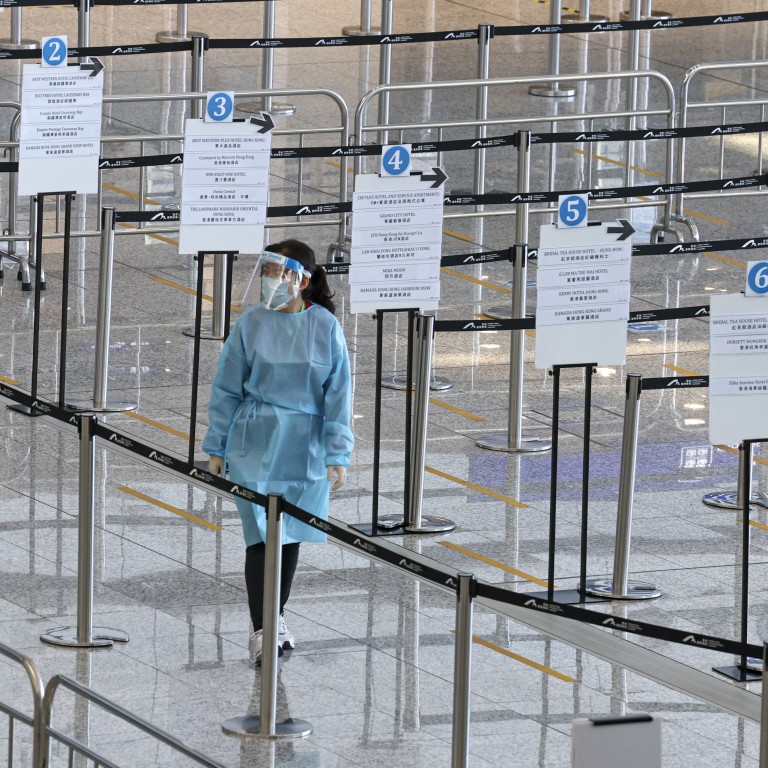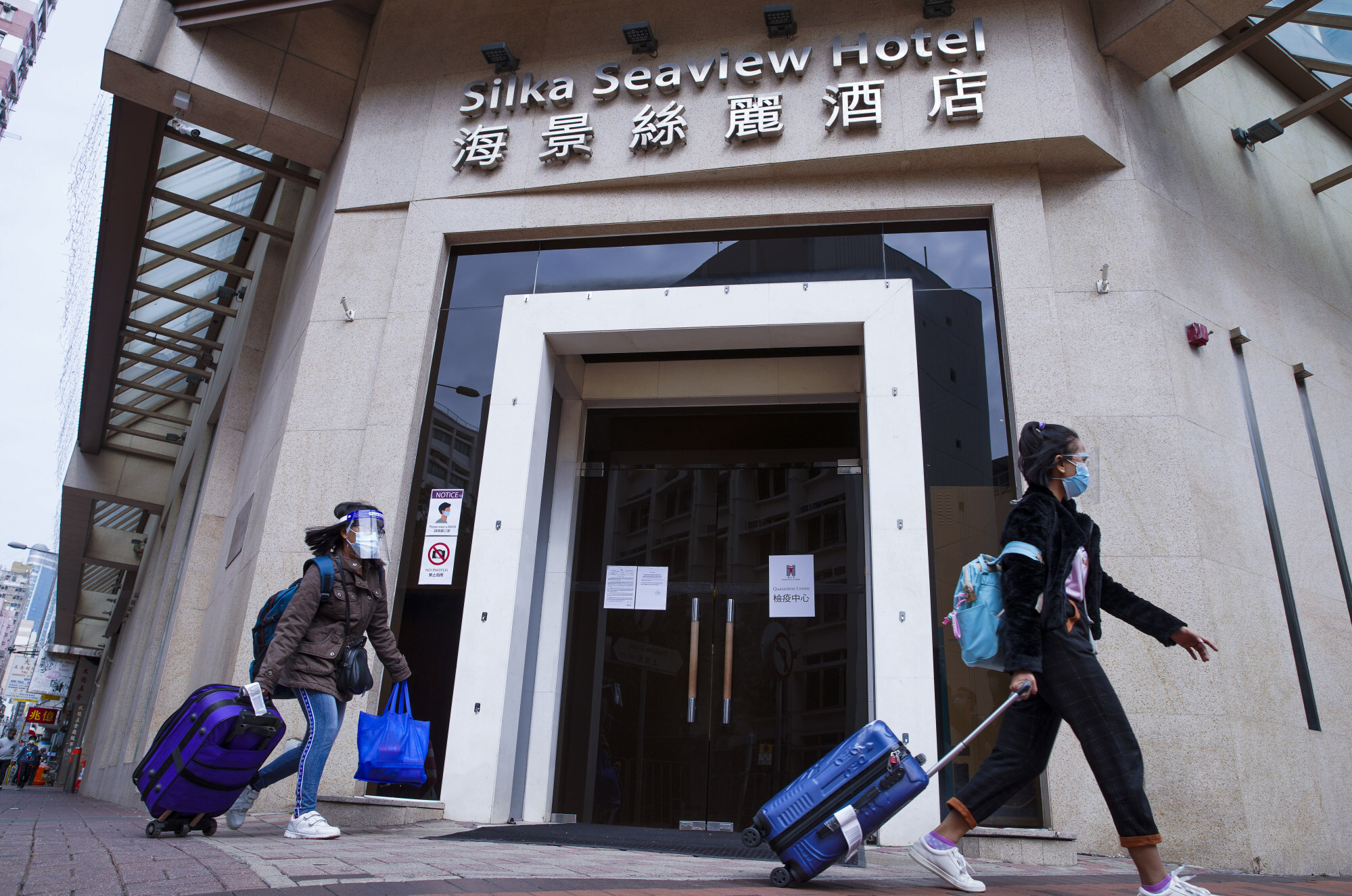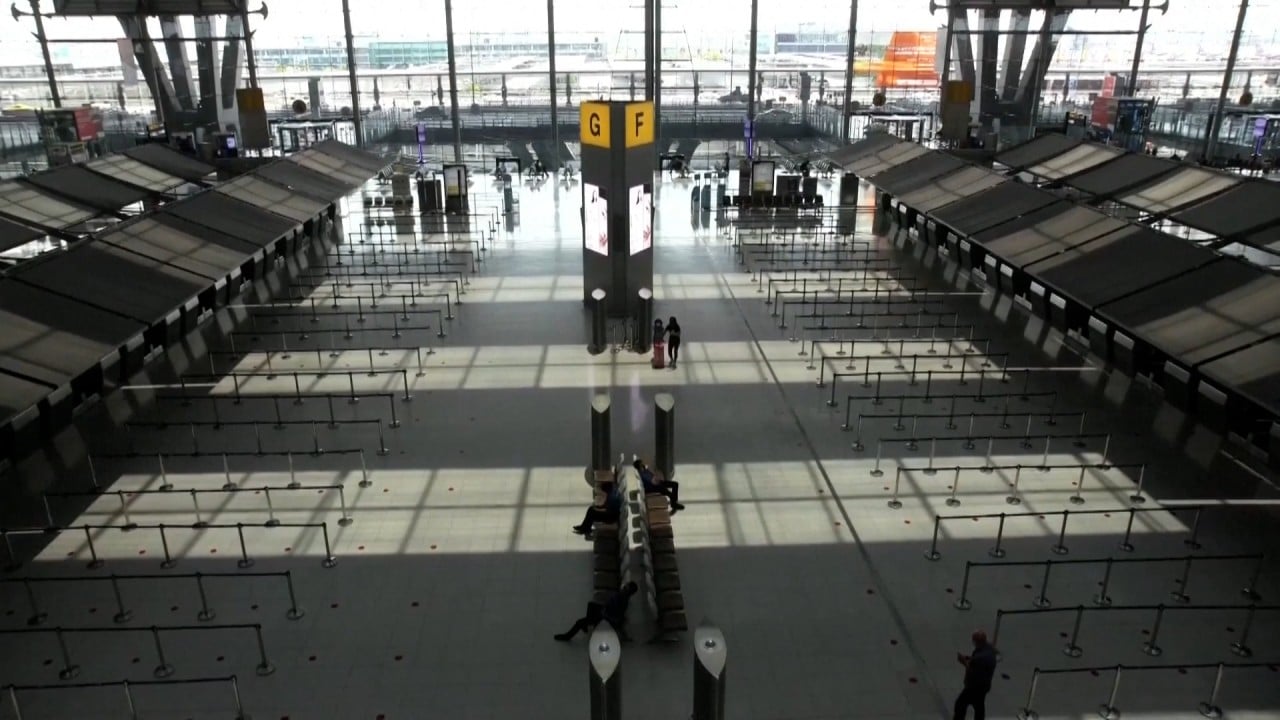
Omicron variant: Hong Kong’s tightened quarantine rules throw travel plans into chaos as family reunions, Christmas hopes dashed amid rush to extend hotel bookings
- Travellers describe their anguish and confusion, as weeks of visa applications, bookings and logistical arrangements look set to go up in smoke
- At least 16 nations have been added to Hong Kong’s highest-risk Group A category, requiring 21-day quarantine, and under which non-residents are barred
Since the government’s announcement on Monday, at least 16 countries have been added to the city’s high-risk Group A tier, over fears linked to the potentially more transmissible variant. They comprised nations which have reported Omicron cases, such as Canada and Australia, as well as some states in Africa, where the new variant was first detected.
Hong Kong residents arriving from Group A countries face a mandatory 21-day quarantine. Non-residents under this group are barred from entry.
As the world grapples with containing the new variant, local health officials have insisted the city’s tough control measures are sufficient for now, with uncertainty among scientists over how lethal Omicron could be.
Alex Lum, a Hong Kong student in Australia, heard news on social media of the ramped-up measures in his hometown, and frantically tried to extend his booking at the Silka Seaview Hotel in Yau Ma Tei from 14 days to 21, only be told there were no more vacancies.
“I was freaking out and calling my parents asking them what should I do?” he said. “It is just really upsetting.”
The 18-year-old was set to arrive in Hong Kong from Adelaide on December 7 before starting university next year. He tried to call other quarantine hotels, only to be told they were busy with many other travellers also trying to extend bookings.
What do we know about the new coronavirus variant, and should Hong Kong be worried?
Lum, who has not seen his parents since the beginning of last year with Australia’s borders closed amid the coronavirus pandemic, said he remained in limbo.
“I am so disappointed. I thought I would be reunited with my family,” he lamented.
Other residents have had to cancel plans entirely. A Russian-Canadian woman, who has lived in Hong Kong for seven years, said she was left in tears when she learned that both Canada and Italy had been moved into Group A, meaning only vaccinated residents were allowed into the city.

Weeks of careful planning, acquiring visas, booking hotels and flights were upended, as her mother, 50, her mother-in-law, 60, and sister, 30, were suddenly unable to come to Hong Kong as they were not residents.
Her sister, in particular, was devastated as she has never met her nephews, aged one and three, and had carefully selected Christmas gifts for them.
“Just like that, everything has gone,” said the Hong Kong resident, a counselling officer who declined to give her name. “I didn’t know that it would affect me so much, but there were just so many expectations about finally meeting my family. Not only for myself wanting to see loved ones, but also for my children.”
Omicron variant: Hong Kong to ban non-residents from three more countries
For Arthur, who declined to give his full name, hopes of a two-week Christmas trip to Germany, Austria and Italy have been dashed.
“I chose these countries specifically because they had remained in Group B for a considerable amount of time and I was hoping they would remain in the category for the foreseeable future,” he said.
Under Group B, fully vaccinated non-residents and unvaccinated Hong Kong residents are allowed to come to the city. Fully jabbed travellers would need to quarantine for 14 days rather than 21.
Separated from family since August 2019, Amy Chu, 21, was looking forward to heading home to Melbourne in Australia with her younger brother on December 27 for a near-month-long reunion trip.
However, the pair’s plans were thrown into doubt when they were unable to extend their hotel quarantine booking, and they also balked at the extra length in isolation, coupled with higher costs.
“I am coming back on the last day of the Chinese New Year so that I can go to school the very next day. But then because of the 21 days, it means I’m going to be missing out on a whole week of school,” Chu said.
The 21-year-old data science student at the University of Hong Kong is particularly concerned about the timing of her return, which could mean she would miss classes without online sessions to fall back on.
There are a total of 40 designated quarantine hotels providing about 11,500 rooms until February 28 in Hong Kong.
The overall booking rate covering the period between September and November 2021 was about 84 per cent for 36 hotels with 10,000 rooms. As of November 29, the booking rate for December and January was more than 80 per cent.
A spokeswoman for the Food and Health Bureau said that due to the strong demand for rooms in December, the government had made arrangements with designated quarantine hotels “to make available around 1,200 reserve rooms for booking”.
Omicron – what are the symptoms, will vaccines work?
Dentist Andrew Lee, 29, remains hopeful that he will still be able to follow through with his travel plans in two months’ time once more details about the Omicron variant emerge, and governments relax tough measures.
“At the moment, I feel – it’s not anger – a kind of sense of rejection. I was looking forward very much to going back home,” he said.
Lee, planning to return to see family in Sydney, said he understood the Hong Kong government’s strict and conservative approach, but added more time was needed to understand the risk parameters of the virus.
“I hope that the rules are subject to changes, given new information about this variant,” he added. “If they find out that it’s actually less severe than scientists are saying, they could return these countries back to two-week quarantine.”



